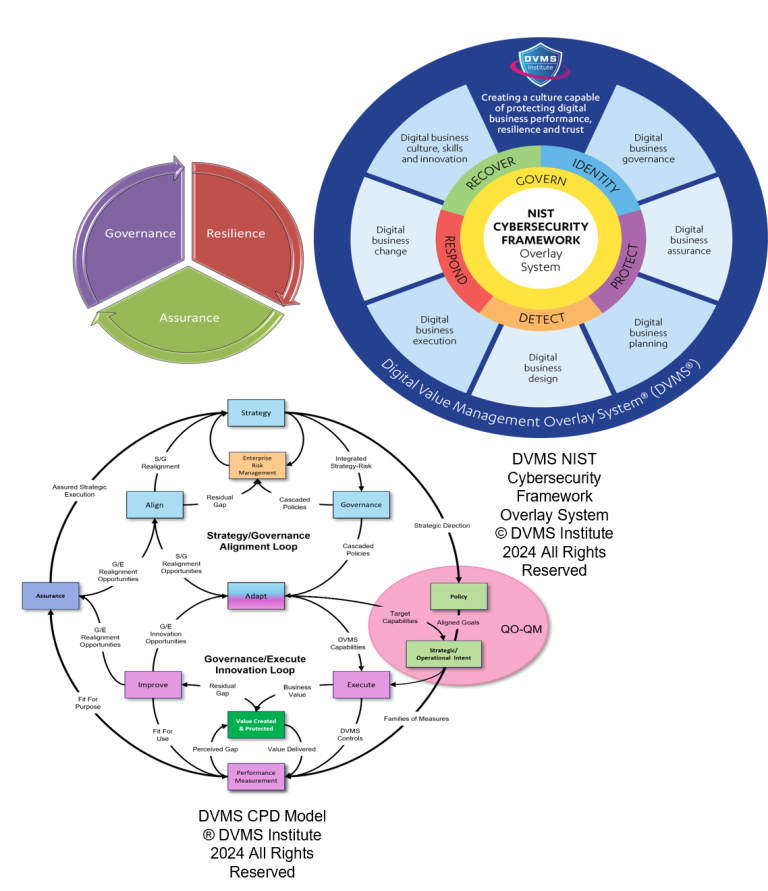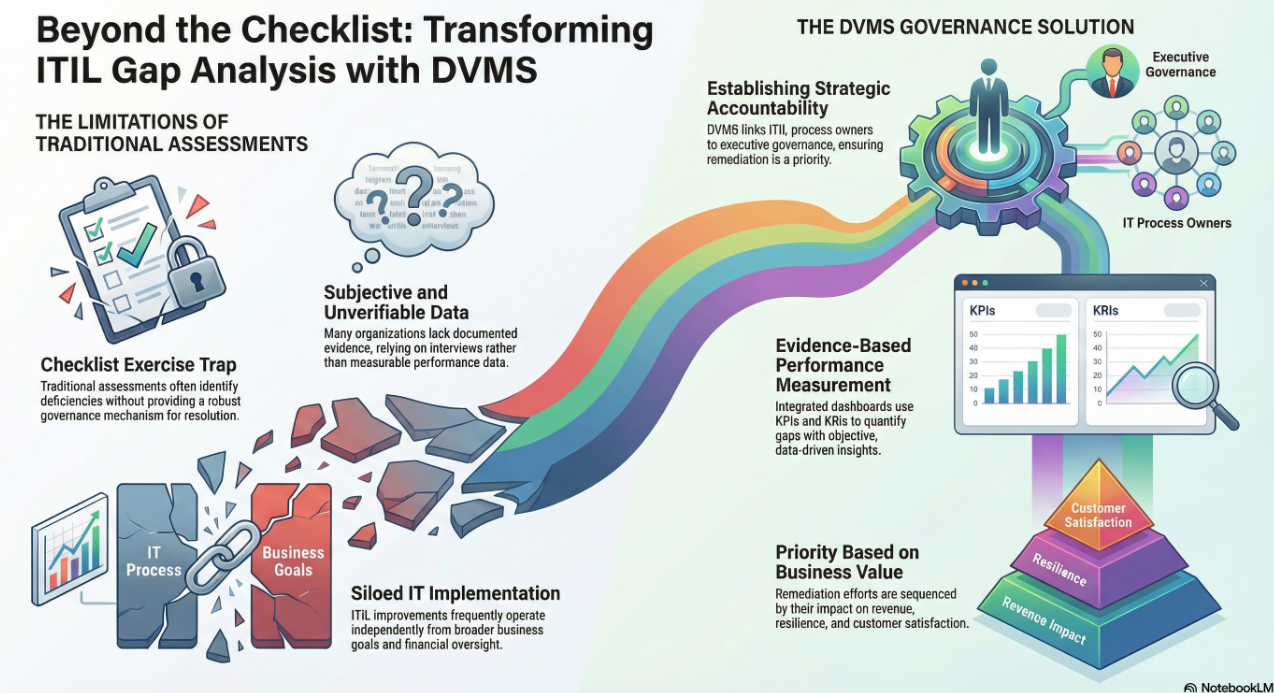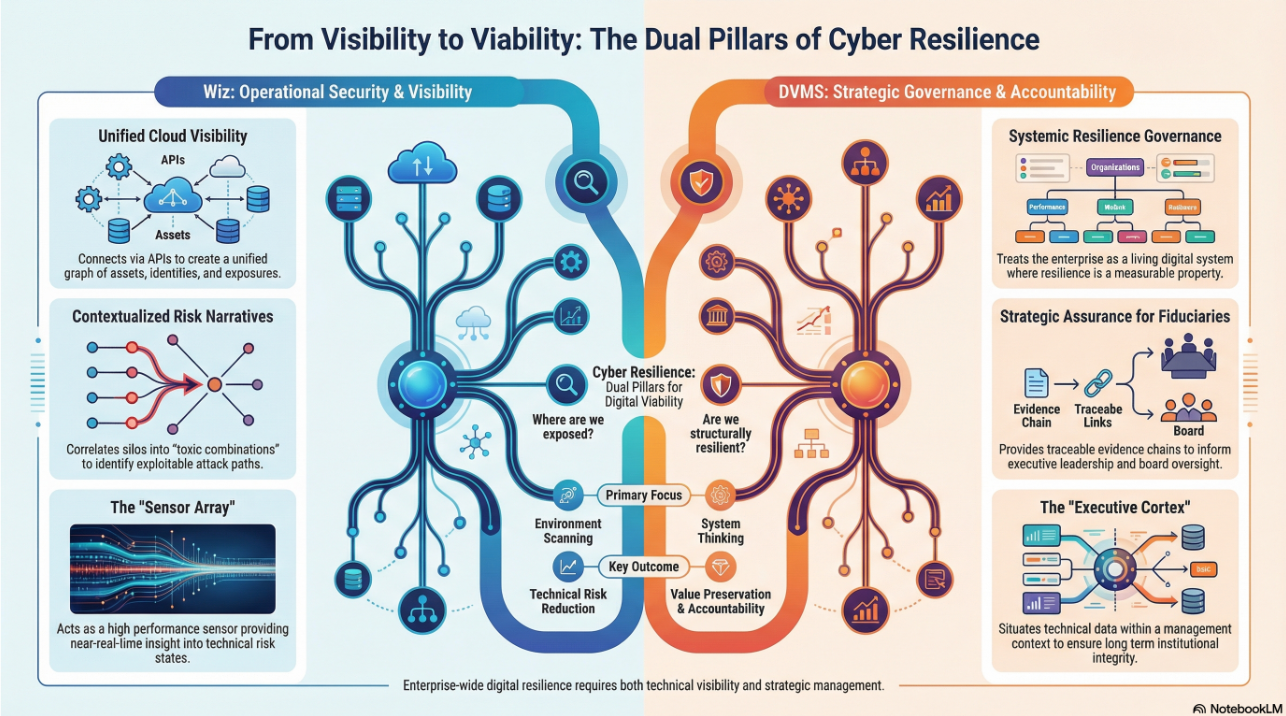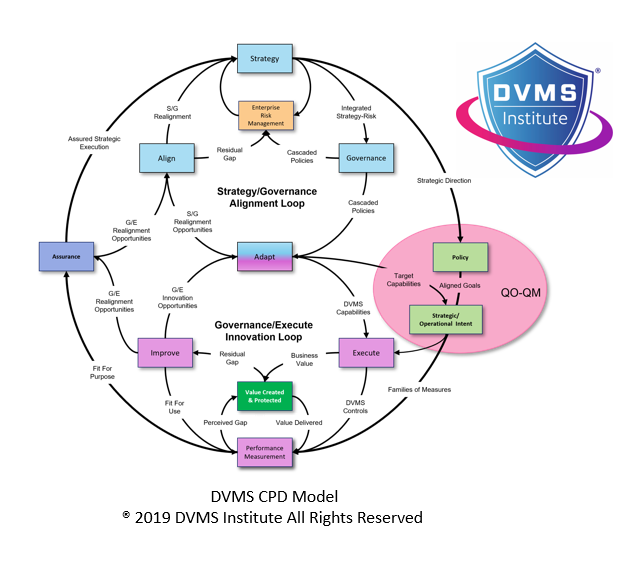Building Holistic and Adaptable Governance, Resilience, and Assurance (GRA) in an Age of Digital Disruption
Rick Lemieux – Co-Founder and Chief Product Officer of the DVMS Institute
In an era of rapid technological advancements, geopolitical instability, and ever-evolving regulatory landscapes, the traditional Governance, Risk, and Compliance (GRC) paradigm is proving increasingly insufficient. While GRC has served as a foundational framework for organizational management, its inherent limitations in adaptability and proactive resilience necessitate a shift towards a more dynamic and responsive approach: Adaptable Governance, Resilience, and Assurance.
Traditional GRC often operates within a rigid, rule-based structure. It emphasizes adherence to predefined policies and procedures, focusing on retrospective analysis and reactive responses to identified risks. While this approach is valuable for maintaining a compliance baseline, it struggles to keep pace with the velocity and complexity of contemporary challenges. The modern business environment is characterized by constant change, demanding a real-time governance framework that can evolve in real-time.
Adaptable Governance, in contrast, prioritizes flexibility and agility. It recognizes that static policies and procedures can quickly become obsolete in the face of emerging threats and opportunities. This approach emphasizes the importance of:
- Dynamic Risk Assessment: Moving beyond static risk registers to continuous monitoring and analysis, leveraging data analytics and AI to identify emerging threats and trends.
- Flexible Policy Frameworks: Policies should be designed to be adaptable to changing circumstances, allowing for rapid adjustments and updates as needed.
- Decentralized Decision-Making: Empowering individuals and teams at all levels of the organization to make informed decisions, fostering a culture of ownership and accountability.
Resilience, perhaps the most critical component of this new paradigm, focuses on an organizational ability to withstand and recover from disruptions. This goes beyond traditional business continuity planning to encompass:
- Anticipatory Resilience: Building capabilities to anticipate and prepare for potential disruptions rather than simply reacting to them.
- Adaptive Resilience: Developing the capacity to adapt and evolve in response to changing circumstances, leveraging innovation and creativity to overcome challenges.
- Systemic Resilience: Recognizing the interconnectedness of organizational systems and building resilience at all levels, from individual employees to the entire enterprise.
Assurance, within this evolved framework, transcends traditional audit and compliance checks. It becomes an ongoing process of validating the effectiveness of governance mechanisms and risk mitigation strategies. This involves:
- Continuous Monitoring and Testing: Implementing real-time monitoring systems to track key performance indicators and identify potential deviations from established standards.
- Proactive Assurance: Shifting from retrospective audits to forward-looking assessments that anticipate potential vulnerabilities and provide early warnings.
- Integrated Assurance: Breaking down silos between different assurance functions (e.g., internal audit, risk management, compliance) to create a holistic view of organizational performance and risk.
- The shift from GRC to Adaptable Governance, Resilience, and Assurance is not merely a semantic change. It represents a fundamental shift in mindset from a reactive to a proactive approach to organizational management. In today’s dynamic world, organizations must be able to anticipate, adapt, and recover from disruptions with speed and agility.
Here are some key reasons why this shift is so significant:
- Increased Complexity: The globalized economy and rapid technological advancements have created a more complex and interconnected risk landscape.
- Accelerated Change: Change is accelerating, making it difficult for organizations to keep pace with traditional GRC approaches.
- Evolving Threats: Emerging threats, such as cyberattacks and climate change, require a more proactive and adaptive approach to risk management.
- Stakeholder Expectations: Stakeholders increasingly demand greater transparency and accountability from organizations.
- Adaptable Governance, Resilience, and Assurance: Provide a more robust and practical framework for navigating the challenges of the 21st century. By embracing these principles, organizations can build a foundation for sustainable success in an increasingly uncertain world.
About the Author

Rick Lemieux
Co-Founder and Chief Product Officer of the DVMS Institute
Rick has 40+ years of passion and experience creating solutions to give organizations a competitive edge in their service markets. In 2015, Rick was identified as one of the top five IT Entrepreneurs in the State of Rhode Island by the TECH 10 awards for developing innovative training and mentoring solutions for boards, senior executives, and operational stakeholders.
DVMS Institute is a renowned provider of accredited (APMG International), Assured (NCSC-GCHQ-UK), and Recognized (DHS-CISA-NICCS-USA) NIST Cybersecurity Framework, Digital Value Management System® body of knowledge publications, certification trainings, assessment platforms and real-life desktop simulation trainings.
The Institute’s NIST Cybersecurity Framework Digital Value Management System® certified training programs teach businesses of any size, scale, or complexity the skills to build a Performance Driven Overlay System for Cyber Resilience capable of anticipating and mitigating the systemic risk digital businesses face today.
By embedding systemic risk management into strategic decision-making and aligning it with employee cultural values, organizations can build resilience—a dynamic capability to withstand digital business disruption and comply with any cybersecurity regulation (SEC, UK, DORA, NIS2, SAMA, SOCI, IMO, etc.) or maturity model mandates (HITRUST, CMMC, C2M2 etc.).
® DVMS Institute 2024 All Rights Reserved




